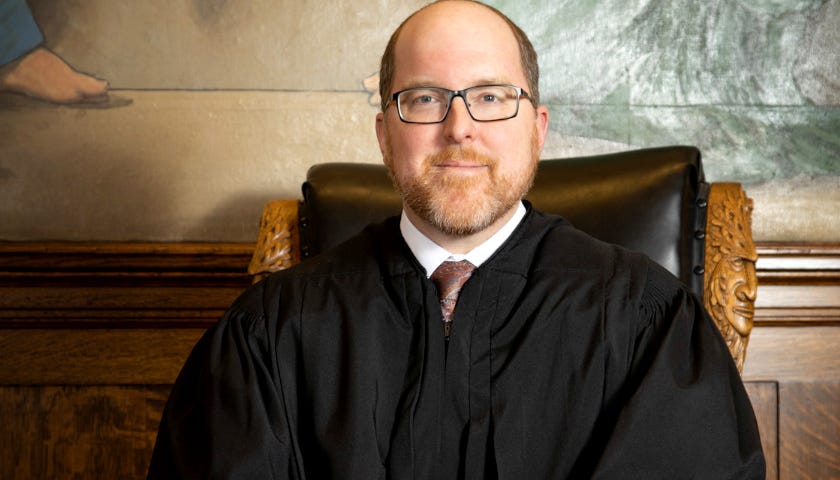Montana Court Blocks Law Shielding Minors from Experimental Treatments
Judge called Montana's interest in SB 99 a "political and ideological one."
A Montana District Court voided a state law this week that protected minors from life-altering gender reassignment procedures.
Gov. Greg Gianforte signed Senate Bill (SB) 99 into law in 2023, which banned Montana minors from experimental treatments such as puberty blockers and cross-sex hormones.
This marks the second legal defeat for the State of Montana in Cross v. Montana. In December 2024, the Montana Supreme Court ruled that SB 99 was likely unconstitutional under the Montana Constitution.
Judge Jason Marks wrote in his opinion that the court was “forced to conclude” Montana’s “interest is actually a political and ideological one: ensuring minors in Montana are never provided treatment to address their ‘perception that [their] gender or sex’ is something other than their sex assigned at birth.”
He added, “In other words, the State's interest is actually blocking transgender expression.”
The plaintiffs argued that SB 99 violated the state Constitution by preventing equal protection, infringing on privacy and limiting free speech.
Regarding privacy, the judge said the defendants did not provide evidence of the health risks of the procedures banned by state law.
Marks, who was appointed by former Gov. Steve Bullock, cited major medical organizations that say these gender reassignment procedures are “a safe, effective way to treat gender dysphoria.”
The judge did mention that the defendants were able to show “some degree of risk and regret” with these life-altering procedures, but he said this did not meet the Armstrong standard.
This standard comes from the Montana Supreme Court’s 1999 case Armstrong v. State. This court ruling guaranteed Montanans a constitutional right to privacy regarding medical decisions.
A Montana district court used the Armstrong case to strike down three Montana abortion laws last year.
In terms of equal protection, Marks ruled that SB 99 discriminates against minors with gender dysphoria because it prevents healthcare providers from providing gender reassignment procedures to them.
Additionally, he said that the state government did not demonstrate why SB 99 was “narrowly tailored to achieve a compelling government interest.”
Concerning free speech, the judge stated that the law “unconstitutionally” regulated healthcare providers' speech by not letting them tell minors with gender dysphoria and their parents about treatment options endorsed by major medical associations.
After the ruling, Akilah Deernose, ACLU of Montana’s executive director, said “The Montana Constitution protects the privacy and dignity of all Montanans.”
Deernose added that the court’s ruling sends “a powerful message to those that seek to marginalize and harass transgender Montanans.”
ACLU of Montana represented the plaintiffs in this case along with Lambda Legal.
Lambda Legal staff attorney Nora Huppert said that “the court saw through the state’s vitriol and hollow justifications and put the final nail in the coffin” of SB 99.
Despite Huppert’s claim, the legal battle over SB 99 may not be over. The defendants can appeal this decision, which would send it to the state Supreme Court.
The State of Montana’s chances of winning on appeal appear slim, given that the Montana Supreme Court has already ruled against the law.
Previously, former University of Montana law professor Rob Natelson criticized the state Supreme Court's judicial activism.
“This is not an ordinary case of judicial activism. This is a court that is totally off the rails, unlike anything I've ever seen in the United States before,” he told The Montana Chronicles.
In addition, Flathead District Court Judge Dan Wilson, who is running for the state Supreme Court, told The Chronicles last week that the court was "in a real state of flux.”
- - -
Zachery Schmidt is the founder of The Montana Chronicles. If you have any tips, please send them to montanachronicles@proton.me.







